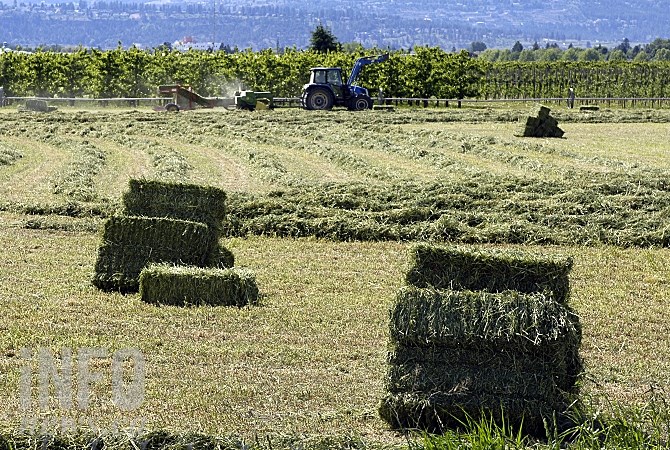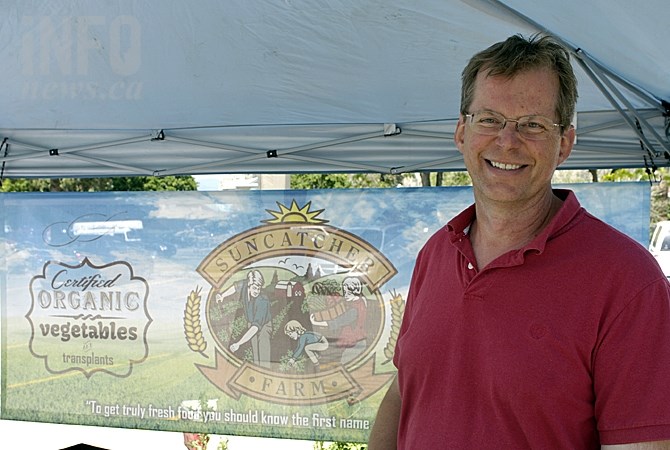
Hay farmers say the early spring could mean extra harvests this year.
(ADAM PROSKIW / iNFOnews.ca)
May 21, 2015 - 7:32 PM
OKANAGAN – The early heat felt across the Okanagan this year has local farmers springing into action.
Producers of vegetables, fruit, hay and alfalfa crops say the warm weather came at least two weeks early this year, meaning they can plant earlier, expect higher yields and very likely harvest earlier as well.
At the Kelowna Farmer’s Market booths are crowded with local berries and vegetables consumers normally wouldn’t see before June.
Sophie Duke of Penticton says one of the main reasons she and her family live in the Okanagan during the summers is the wide variety of easily accessible local produce.
“I was really surprised to see fresh strawberries this early in the year," she says. "It's a treat we look forward to all winter so to have it come early is really neat."
Tony Cetinski with Suncatcher Farm on Benvoulin Road in Kelowna says this is one of the earliest springs he can remember.
“We’re two or three weeks ahead of normal,” he says. “I think the quality will be better too because of it. Obviously plants respond to the sunshine so the more we have the better off we are. Early is always better.”
He says farmers of field crops like hay and alfalfa have the most to gain, with some in his area expecting three or even four harvests this year. That means more feed for livestock and more money in farmers' pockets.
Lorena Wood of Eastwood Orchard in east Kelowna says they have been working long hours trying to make the most of the extra sunshine and lack of frost. She grows organic cherries, peaches, nectarines, apricots and a variety of apples, all of which have gotten an early start this year.
“Normally when we get early warm weather we also get a late frost, which kills the blossoms,” she says. “Thankfully we didn’t get that this year so we’re really excited.”
Wood says while her fruit trees have a head start, there are always things for farmers to worry about.
“An earlier spring means earlier insects too,” she says. “But it’s worth it because we might have cherries in June this year instead of in July.”
She says an early start to the growing season doesn’t necessarily translate into more profit for farmers but it does have an impact on their finances.
“It won’t necessarily mean more or less money but it will mean earlier money,” she says.
The biggest threat to crops this year is the prediction of a hot, dry summer, Cetinski says.
“Our concern now is water supply,” he says. “We have ample water as long as (Mission) Creek is flowing but snowpack was low... if this continues it could cause an issue. We’ll have to wait until August to know.”

Tony Cetiniski of Suncatcher Farm says he was able to plant his vegetables weeks earlier this year but is still worried about water later in the year.
(ADAM PROSKIW / iNFOnews.ca)
To contact the reporter for this story, email Adam Proskiw at aproskiw@infonews.ca or call 250-718-0428. To contact the editor, email mjones@infonews.ca or call 250-718-2724.
News from © iNFOnews, 2015